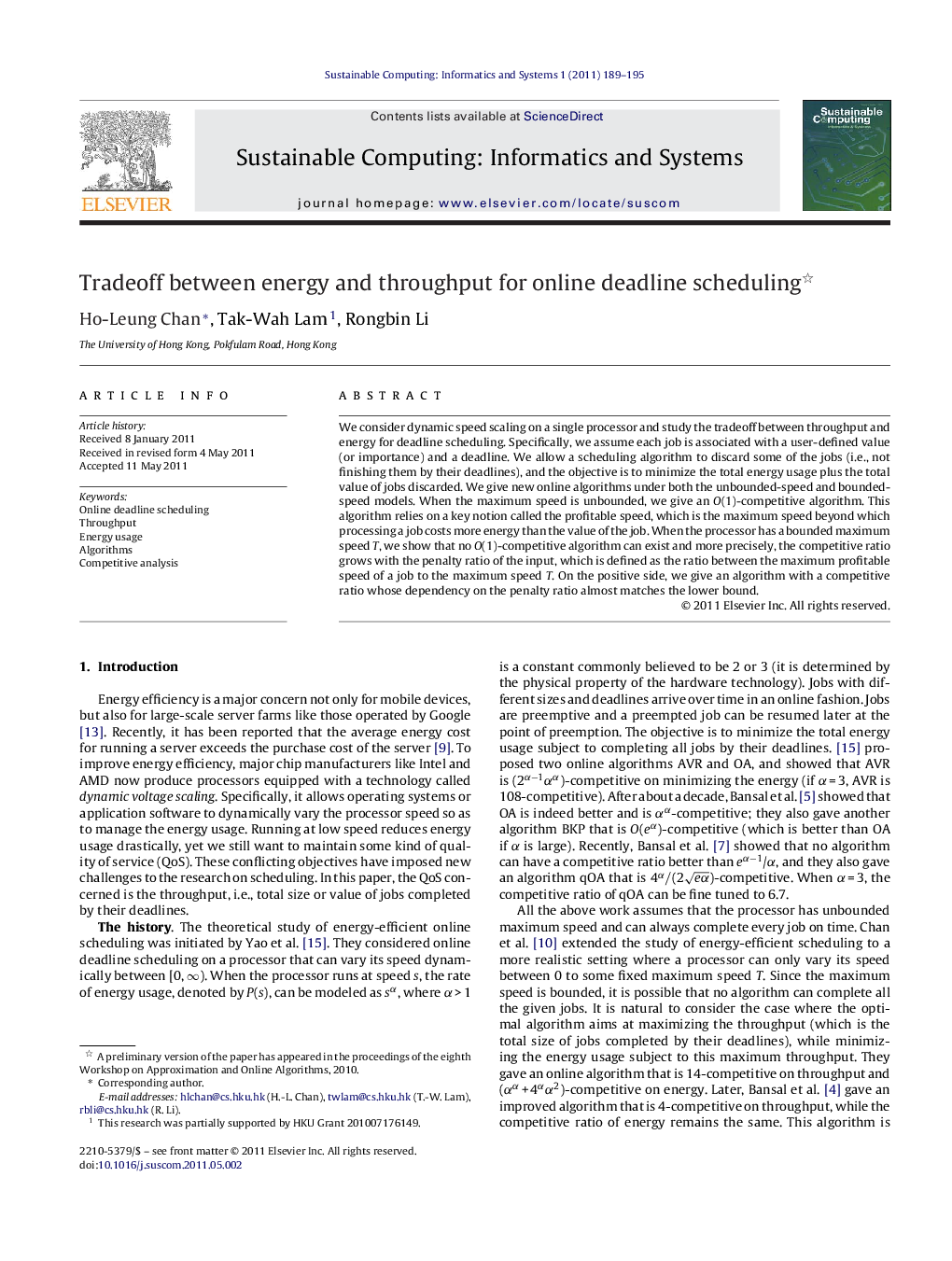| Article ID | Journal | Published Year | Pages | File Type |
|---|---|---|---|---|
| 493852 | Sustainable Computing: Informatics and Systems | 2011 | 7 Pages |
We consider dynamic speed scaling on a single processor and study the tradeoff between throughput and energy for deadline scheduling. Specifically, we assume each job is associated with a user-defined value (or importance) and a deadline. We allow a scheduling algorithm to discard some of the jobs (i.e., not finishing them by their deadlines), and the objective is to minimize the total energy usage plus the total value of jobs discarded. We give new online algorithms under both the unbounded-speed and bounded-speed models. When the maximum speed is unbounded, we give an O(1)-competitive algorithm. This algorithm relies on a key notion called the profitable speed, which is the maximum speed beyond which processing a job costs more energy than the value of the job. When the processor has a bounded maximum speed T, we show that no O(1)-competitive algorithm can exist and more precisely, the competitive ratio grows with the penalty ratio of the input, which is defined as the ratio between the maximum profitable speed of a job to the maximum speed T. On the positive side, we give an algorithm with a competitive ratio whose dependency on the penalty ratio almost matches the lower bound.
